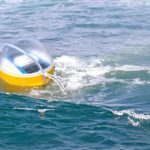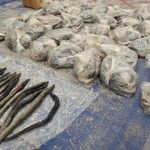Responding to WWF Scotland’s year-end assessment of Scotland’s main whitefish stocks (embargoed until 00.01 Sunday 3 Jan. 2010), which included supportive comments on the leading role that Scotland is taking in ensuring a sustainable future and the need for sensible reform of the Common Fisheries Policy, Bertie Armstrong, Scottish Fishermen’s Federation chief executive, said:
”The only real way to make lasting progress is to involve the industry in the development of fisheries management. That has begun in Scotland, but the challenges now visible for 2010 mean that ever-closer cooperation between all stakeholders will be essential.
“WWF’s supportive statements are very welcome – a telling change from the dialogue of the recent past and a hopeful note as we face difficult times in the immediate future.”
Scottish fishermen in co-operation with Government and scientists have been spearheading a number of conservation initiatives to help ensure a sustainable and profitable future for the industry. These include:
All Scottish vessels affected by days at sea are in the Scottish Government’s conservation credits scheme, which offers fishermen incentives for fishing in a more sustainable and responsible way.
Over 50% of all Scottish fisheries by value are currently Marine Stewardship Council (MSC) certified or are in the full assessment process.
One in 10 of the world’s MSC certified fisheries are Scottish.
90% of Scottish pelagic fisheries are now certified as being sustainably fished.
125 Scottish fishing vessels are certified under the Sea Fish Industry Authority’s Responsible Fishing Scheme with more currently undergoing assessment.
In the North Sea, 50% of the main stocks are locked into long-term management plans with further stocks in the process of this happening. Long-term management plans ensure that stocks are fished to a precautionary fishing mortality, ensuring their sustainability over the long-term.





















